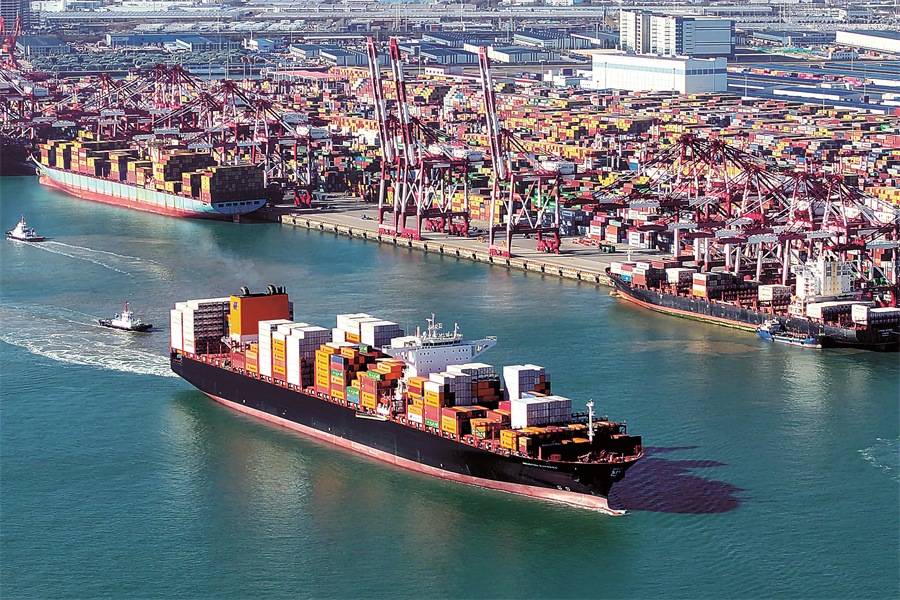
China has filed a lawsuit with the World Trade Organization's dispute settlement mechanism following the US decision to raise the "reciprocal tariffs", the Chinese Ministry of Commerce announced on Wednesday.
What's worse, on the same day US President Donald Trump raised the additional tariffs to 125 percent, hours after China took a countermeasure of an additional 84 percent duties on American goods.
The world is undergoing unprecedented changes, marked by a shift in the global power structure and a full-scale rewriting of international rules. The US has been ignoring established norms and making a mockery of the rule of law.
READ MORE: China expresses grave concern over US 'reckless' tariffs at WTO
Discriminatory trade laws and unilateral sanctions, for some countries, have become the order of the day, pushing global legal frameworks into a crisis. The surge in trade disputes, compounded by the paralysis of the World Trade Organization's Appellate Body, has led many countries to bypass multilateral solutions in favor of retaliatory actions.
The rise of unilateral, discriminatory trade measures has intensified disputes between countries, turning global trade from a cooperative effort into a zero-sum game. The very foundation of the global trading system is crumbling because international relations are no longer anchored by rules or legal frameworks. In such a situation, the global trade system is bound to collapse, dragging the world into a potential disaster.
Global trade isn't only about the exchange of goods; it's the "engine "driving global economic growth and the "ballast" preventing the ship of global peace from capsizing. But this engine runs on rules, rules that guarantee fairness, transparency and predictability.
After the end of World War II, the United States and other developed countries devised the global trade system, laying special emphasis on multilateralism. As the chief architect of the postwar multilateral order and a founding member of the WTO, the US has led the charge in promoting these trade rules. Yet today the US seems to have consigned the very spirit of multilateralism that it helped build to the trash can. Instead of leading by example, the US is increasingly undermining the system it once championed.
The struggle for global economic dominance has turned into a contest over the rules that govern global trade. In this new "rules war", the US has been using "national security" as a pretext to impose trade and investment restrictions on China, including sanctions on semiconductor exports. In its latest move, the US administration has violated the WTO's most-favored-nation principle and slapped massive additional tariffs on Chinese goods on the pretext of safeguarding "national security" and protecting the interests of American industries.
This brazen violation of international law has put international trade relations in peril, making it clear the US, instead of being a champion of the rules-based world order, has become a disrupter of global trade and violator of international rules.
China's efforts to reshape the global trade system is not aimed at dismantling the existing global trade framework; they are meant to breathe new life into multilateralism, and reform the WTO to make it fairer, and more equitable and representative. China wants to engage in rule-making to ensure global trade rules reflect the changing international landscape and align with the world's highest standards, exemplified by agreements like the Comprehensive and Progressive Agreement for Trans-Pacific Partnership.
China is stepping up to the plate with a clear goal: to build a global trade system that is open, fair and cooperative in nature. It is committed to promoting a model of shared opportunities, advocating trade and investment liberalization, and creating a level playing field where every country can thrive.
As part of this reshaping process, China aims to secure a seat at the table to discuss the future of global trade, and have a say in global economic affairs commensurate with its growing economic power and influence. The global trade rules need to be upgraded to reflect the global economic reality of today, and China is determined to be at the center of that evolution. This means pushing for a greater role in setting the global economic governance agenda.
ALSO READ: Tariffs make US an isolated trade island
As for the WTO, it is more than just a trade body; it is the upholder of multilateralism. The rules-based WTO has been a crucial force fostering global economic cooperation, which China firmly supports. China has been calling for the revival of the WTO's dispute settlement mechanism to ensure the global trade system is fair and balanced. The "Multi-Party Interim Appeal Arbitration Arrangement", an alternative system for resolving WTO disputes and a temporary solution to the WTO dispute settlement crisis, which China established in cooperation with the European Union, is just one example of China's proactive role in promoting multilateralism.
The WTO must be reinvigorated, and global trade should once again be governed by law. Trade should be a pillar for the development and future prosperity of all our people. If we are to navigate the tumultuous waters of global economic uncertainty and achieve common prosperity, the rules-based multilateral trading system, with the WTO at its core, will be our most important anchor.
The author is a professor at the School of International Law, China University of Political Science and Law.
The views don't necessarily reflect those of China Daily.


